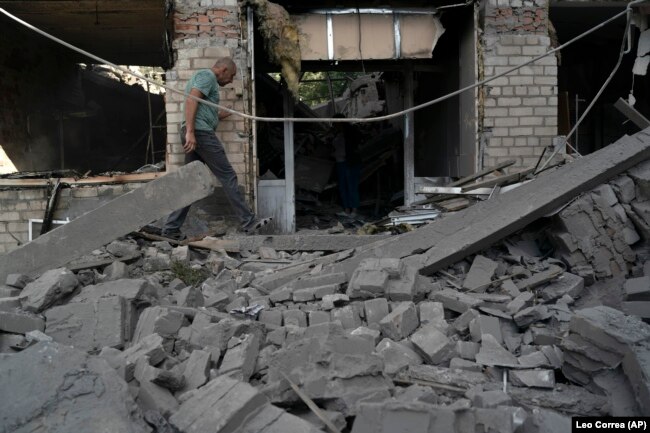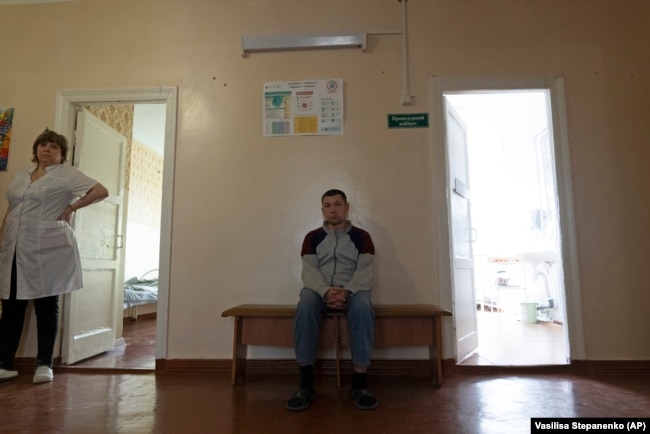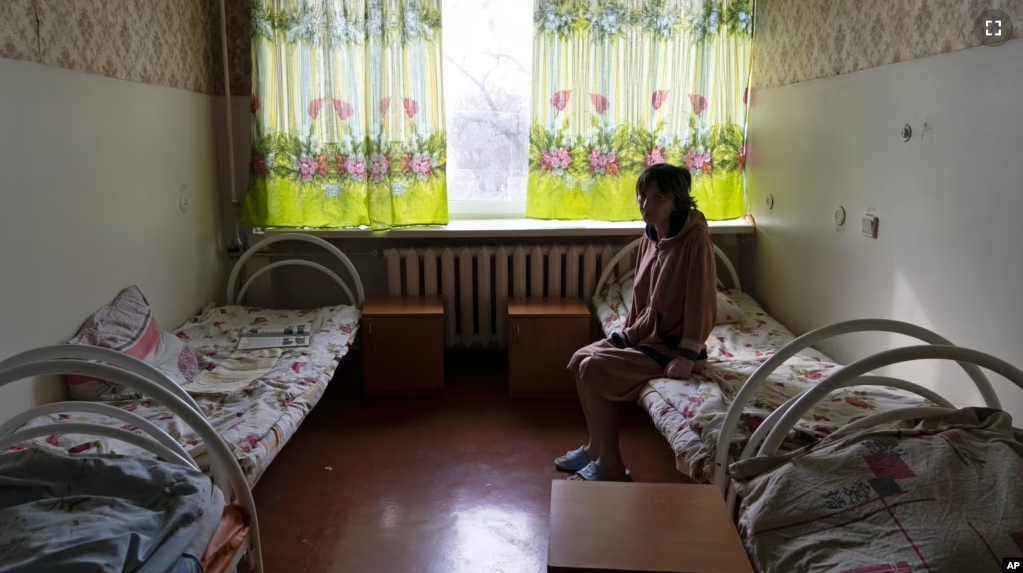Sitting in a restaurant in Kramatorsk, Ukraine, 20-year-old Nastya took slow, deep breaths to calm herself. Her neighborhood had just been bombed again, as the war with Russia continues.
She had visited a local psychiatric hospital that morning to get mental health care. That hospital itself had been hit by a missile last September.
“After today’s shelling, I could no longer cope with anxiety, the feeling of constant danger,” the speech therapy student said. Nastya would only identify herself with her given name when she sought mental health care. There is traditional prejudice against people with mental health problems in some areas of Ukraine.
Experts say there are hundreds of thousands of people like Nastya in Ukraine. And they say, as the war continues so will the rise in the number of people seeking mental health care.
In December, The World Health Organization (WHO) reported about countries that have experienced conflict in the past ten years. It said that one in five people in those countries will experience a mental health problem. The report says an estimated 9.6 million people in Ukraine could be affected.
Russia’s invasion in February 2022 forced millions of people to flee their homes. Others took shelter underground for months to try to protect themselves from shelling.

For Nastya, as for so many, the war changed everything overnight. “You woke up with the feeling that you are just surrounded by horrors, anxieties, surrounded by constant air raid sirens, flying planes, helicopters,” she said. “You’re simply in a closed circle which is not filled with the happy times of before, but with great fear.”
Increasing demand for treatment
The need for mental health treatment has greatly increased across Ukraine, health professionals say, even as they deal with the effects of war on their own lives.
“The demand is huge,” said psychotherapist Pavlo Horbenko. Since 2014, Horbenko has been treating people affected by war at a health center in Ukraine’s capital, Kyiv. In 2014, Russia seized control of Crimea and set up Russian-allied states in eastern Ukraine.
He noted a large increase in patients seeking treatment for sexual violence, loss of loved ones, and suicidal thoughts. “Previously, it was one or two requests a week, and now there can be 10 a day.”
He added that the need for mental health treatment increases after a war. Sometimes the signs of mental health problems appear as calm and order begin to return to life in a former war zone.
Horbenko said Ukraine needs more mental health care specialists.

Health care workers also affected
Lebanese psychiatrist Maya Bizri recently visited Ukraine as part of a program run by the medical aid organization MedGlobal. She came to train doctors and nurses to notice mental health issues in both health care workers and patients.
“If you want a health care system that is resilient, you have to take care of your own people,” Bizri said.
Dr. Ludmyla Sevastianova is the psychiatric hospital director in Kramatorsk, in Ukraine’s eastern Donbas area.
The war “affects us just as much as it affects patients,” she said. “We are also worried about our families, our relatives and friends. But we are doing our medical duty, we are helping.”
Sevastianova, a psychiatrist, has made it her mission “to save the hospital in order to keep people working, to save the hospital so it can provide care to patients. This is the goal and it helps.”
However, she knows the war will have long-term effects.
“Things do not pass without a trace. I cut my hand, a scar remains. So it is with our psyche,” Sevastianova said.
I’m Jill Robbins. And I’m Andrew Smith.
Elena Becatoros wrote this story for The Associated Press. Andrew Smith adapted it for VOA Learning English.
____________________________________________________________________
Words in This Story
anxiety -n. a feeling of worry or nervousness
constant -adj. continuous, without stopping
therapy -n. treatment for a physical or mental health problem
siren -n. a loud alarm used to warn of danger or urgent needs
psychiatrist -n. a doctor who specializes in mental health
resilient -adj. not easily weakened or damaged
trace -n. a mark or sign left by the passage of some person or thing
